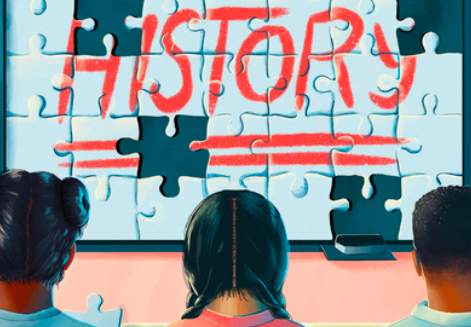Like many First-Generation College students, I had no clue what I was doing when I got to college. Growing up, it seemed like my only career options were being a doctor, lawyer, or teacher. Some would say I like to argue, so my natural inclination was to become a lawyer. My undergraduate years didn’t so much crush this dream, but it did broaden my career options and ideas of what higher education actually is.
As a freshman, my intended major was Political Science and for two whole years, I constantly switched majors to various versions of some form of Political Science to try to find a passion for Political Science. Spoiler alert- I don’t like Political Science. I thought this would be my way into Law School. And while I took an Ethnic Studies class every semester since my very first semester, it didn’t dawn on me to declare Ethnic Studies as my major until the semester before my senior year. If I’m being honest, I think I was in denial. I loved Ethnic Studies and I saw so much importance in it, but I had internalized this idea that people in “the real world” wouldn’t take it seriously. To be fair, a lot of people in my life didn’t know what Ethnic Studies was and on top of that, it was difficult for me to describe it in Spanish to the elders in my life.
In an effort to debunk what Ethnic Studies is and why it’s needed in “the real world,” here are 5 things I learned from being an Ethnic Studies Major.
- Liberal Arts Degrees Don’t give you Careers, they Give you a Point of View
Let me start off by addressing the biggest misconception a lot of first-generation college students and their families have- your major determines your career. Unless you’re in a traditional science or engineering field, this is hardly ever the case. I now see it as something beautiful, but at one point I switched majors weekly because I thought whatever major I decided on that week would get me into Law School. The truth is that there is no clear career path for an Ethnic Studies major, but there isn’t one either for any Liberal Arts major. What Ethnic Studies gave me is a lens through which to look at the world, one that is critical of race and ethnicity. When I started to actually enjoy learning, my career path became more clear and I no longer wanted to be an attorney!
- Diversity and Inclusion is Needed in all Corners of Society
I think what the last few years have taught us as a society is that we need to face inequity and representation head-on. Companies, across all industries, are making moves towards diversity and inclusion efforts because issues affecting Communities of Color aren’t only a social phenomenon. Our social framework is incredibly fragile because it has everything to do with race and ethnicity, something communities of color and Ethnic Studies scholars have known for decades. I’ve always known my Ethnic Studies degree has value, but now it’s seen as valuable to different markets and industries.
- It Should be Easy to Build Community with your Peers
Making friends in college, especially at a predominantly white institution, is difficult for first-generation college students. Many of us don’t expect the competitive and “cut-throat” environment within our majors and institutions often breed mentalities where students rather one-up their peers than work together. My Ethnic Studies professors always encouraged collaboration and building community. As someone who went through a lot of majors, I can confidently say the competitive spirit between peers serves no one and you should not have a hard time making friends in your classes.
- Knowledge Doesn’t only Come from Institutions, it Comes from our Communities
This is probably the most mind-blowing thing I learned from being an Ethnic Studies major. There is a running stereotype, rooted in white supremacy, that universities are the only beacons of knowledge and light in this world. Ethnic Studies taught me this is entirely not the case, but growing up I believed everything I had to learn would be at school. I now realize there are people in this world, most times white men, deciding what is and isn’t important for us to learn. Who’s to say that the knowledge within our communities isn’t just as reliable? There is so much wisdom to be uncovered when we stop thinking that schools and universities are the only places we can go to learn.
- Ethnic Studies is a Science and it’s Rigorous
This is a hill I’m willing to die on. Funny enough, I never felt very challenged in my major classes as much as I did in my Ethnic Studies courses. Ethnic Studies pushed me to think deeply and intentionally about our world. I constantly performed original research and had to back every claim I made with evidence. Some would like to think that Ethnic Studies scholars simply theorize, but so many of us are on the ground doing the work and building life-changing research.

